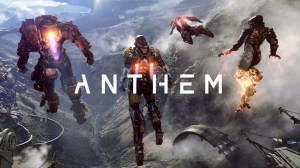Following its recent announcement that its servers would be shutting down at the beginning of 2026, there has been a renewed interest among players around the shooter game Anthem and the reasons for its perceived failure. More context was recently added to the discussion when Anthem executive producer Mark Darrah stated in an interview that he “always knew” the game would eventually have to be discontinued, which he felt was an unfortunate turn of events and a consequence of the core design.
Videos by ComicBook.com
Speaking to MrMattyPlays in a YouTube interview, Darrah opened up about his opinions surrounding the development of Anthem, feeling like things didn’t have to go the way they ultimately ended up going.
“I always knew [Anthem] was going to go away eventually,” said Darrah. “Anthem could have been built in a way where this wouldn’t be necessary.”
Darrah compared Anthem to Destiny 2, which was released before Anthem and appears to be outlasting the game while still going strong to this day.
“Destiny has very sophisticated bits of technology for host migration, and it’s peer-to-peer,” Darrah explained. “We didn’t know how to do that, and we frankly couldn’t afford to do that, but we could have done something.”
As Darrah puts it, Anthem would have had to sacrifice fidelity, latency, and its overall gaming experience to be something that wouldn’t need to be “sunset” in the long term. In the interview, Darah expressed concern with the idea that games like Anthem and Concord are rapidly disappearing, saying he thinks game preservation is a critical issue today.
In July, EA announced Anthem would be stopping service in January, which would effectively end access to the game for players after the servers go offline. Along with this announcement, it answered questions players might have about the shutdown, including why someone who made game purchases would no longer be able to play it.
“Anthem was designed to be an online-only title so once the servers go offline, the game will no longer be playable,” said EA.
Concerns about what happens to online-only games after they shut down have become a hot-button political topic recently, which may influence the way future games aiming for a live service model, like Anthem, will be developed. A movement dubbed “Stop Killing Games” has recently succeeded in achieving its signature goal for its European Citizens’ Initiative, which may compel the European Parliament to consider new rules surrounding the issue in the future.
Supporters of the movement hope that game developers will be compelled to develop contingency plans for games that could be shut down in the future, thereby ensuring players’ continued access to games they have invested time and money in. Some propose that servers should be handed over to the community after official support for a game ends, or at least some reasonable steps should be taken so that the game can be run without the direct involvement of the publisher.
If game preservationists and player rights advocates get their way in the future, it’s possible that no developer would be able to say that they would “know” their game is getting shut down in the future. Instead, they might plan for the game to transition to their players’ hands sometime in its life cycle, or that it would at least sit in a functional state, ready for someone else to come along and pick up the torch.









